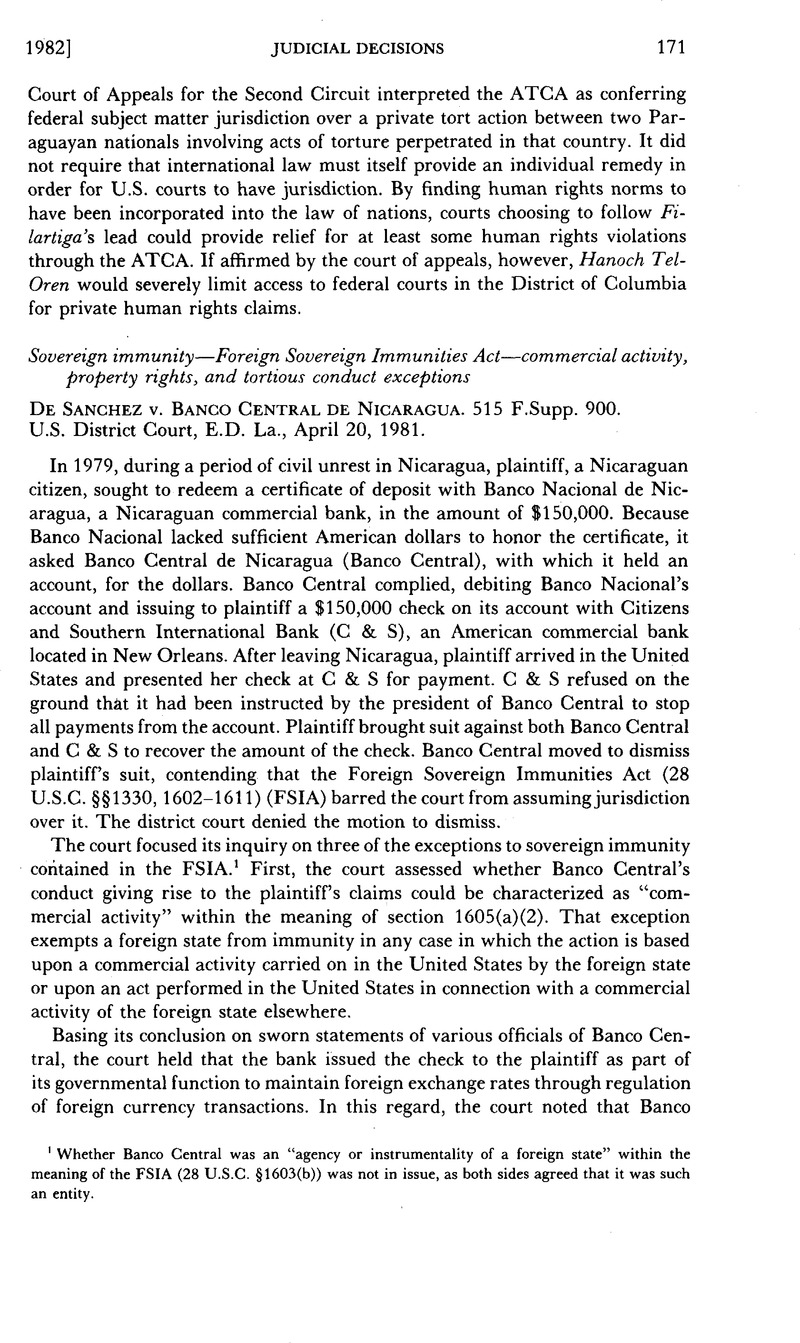No CrossRef data available.
Published online by Cambridge University Press: 27 February 2017

1 Whether Banco Central was an “agency or instrumentality of a foreign state” within the meaning of the FSIA (28 U.S.C. § 1603(b)) was not in issue, as both sides agreed that it was such an entity.
2 515 F.Supp. 900, 910 (quoting H.R. Rep. No. 94–1487, 94th Cong., 2d Sess., reprinted in [1976] U.S. Code Cong. & Admin. News 6604, 6618) [hereinafter cited as House Rep.].
3 The Act states at 28 U.S.C. § 1603(d) that “[t]he commercial character of an activity shall be determined by reference to the nature of the course of conduct or particular transaction or act, rather than by reference to its purpose.” See also House Rep. at 6615.
4 515 F.Supp. at 913 (citing House Rep. at 6619–20).
5 647 F.2d 320 (2d Cir. 1981), 75 AJIL 965 (1981).
6 647 F.2d 300 (2d Cir. 1981), 75 AJIL 968 (1981).
7 Cf. Filartiga v. Peña–Irala, 630 F.2d 876 (2d Cir. 1980), 75 AJIL 149 (1981), in which the Second Circuit held that an allegation of torture in violation of international legal norms was sufficient to permit an alien to bring suit under the FSIA.
8 The only reference by the court to the international law standard is a footnote citation to the House Report, which states that “[t]he term ‘taken in violation of international law’ would include the nationalization or expropriation of property without payment of the prompt and adequate and effective compensation required by international law.” 515 F.Supp. at 910 n.10.